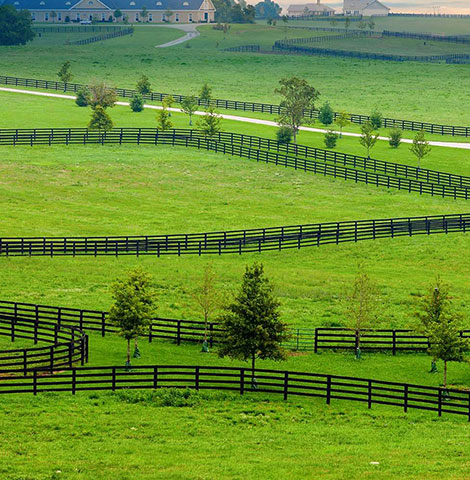
Everything You Need to Know About Homestead Exemptions
Did you know that when you pay property taxes, the money is used to fund government services? The government receives revenues by taxing the proceeds of investments and certain incomes. Such taxes fund the jobs of government employees and also help in infrastructure development.
Verify your mortgage eligibility (Feb 18th, 2026)These taxes can be a burden on many homeowners. Fortunately, homestead exemptions and valuation freezes can lead to lower bills. Read on to learn all about homestead exemptions and whether you may be eligible as a homeowner.
What are Homestead Exemptions?
Homestead exemptions are legal protections that shield homeowners from creditors in the event of a spouse’s death or the filing of bankruptcy.
These exemptions not only protect homeowners from creditors but also offer them some property tax relief. Those who own homes with the lowest assessed value will get the greatest benefit from a homestead exemption.
Verify your mortgage eligibility (Feb 18th, 2026)Homestead exemptions not only provide physical shelter but also prevents the forced sale of a primary residence. This protection, however, doesn’t protect mortgage defaulters from foreclosure proceedings.
What You Need to Know About Homestead Exemptions
1. How to benefit from homestead exemptions
If your homestead is in Pennsylvania or New Jersey, homestead exemptions don’t apply to you on the state level, although you can base your claim on federal law. All other states have homestead exemptions.
You may qualify for a homestead exemption if you live with any disabilities, are a senior citizen, or a low-income earner. You have to file a claim, depending on where you live. However, some states provide homestead exemptions to all homeowners.
Verify your mortgage eligibility (Feb 18th, 2026)Homesteads are considered primary residences, and as such, exemptions only apply to one residence and not a claimant’s other properties (even if the other properties are also residential ones).
People who own more than one home must declare their primary residence to their town office. It is the primary residence that will be eligible for a homestead exemption.
2. How exactly do homestead exemptions work?

Verify your mortgage eligibility (Feb 18th, 2026)
Verify your mortgage eligibility (Feb 18th, 2026)
Like other infrastructure, homestead owners owe property taxes to municipal authorities, assessed off the homestead’s value or set at a fixed amount. Homestead exemptions serve to offer certain reductions in property taxes. They vary depending on the state, with some offering fixed exemptions on the first $65,000 of a home’s assessed value.
Property tax deductions then proceed from the $66,000th mark onwards at normal rates. So, using this $65,000 homestead tax exemption criterion, a homestead with an assessed value of $265,000 will only have $200,000 taxed. Meanwhile, a home valued at $70,000 will only have $5,000 taxed.
3. How do homestead exemptions protect me from unsecured creditors?
Homestead exemptions vary by state. Be sure to review the policies in your state. States like Florida and Texas offer financial protections from unsecured creditors, but there are limits on the acreage allowed. Homestead exemptions do not protect the homeowner from secured creditors, however.
Verify your mortgage eligibility (Feb 18th, 2026)It’s noteworthy that the limits don’t protect the homestead’s value but rather the owner’s equity in the home. The owner’s equity is calculated by the value of the home minus the balance of the mortgage and other unsecured claims.
If the homeowner’s equity is less than the limit, the homeowner can’t be forced to sell to benefit unsecured creditors. On the other hand, if the equity held is more than the limit, foreclosure and a sale may be forced. However, the homeowner can retain portions of the proceeds of the sale.
4. Once granted, do I have to renew home exemption claims?
Again, this varies depending on the state. In many states, it automatically renews annually so long as the residence remains the same. We recommend that you check with your town office to know the exact policy on homestead exemption renewals.
Verify your mortgage eligibility (Feb 18th, 2026)5. Is a homeowner valuation freeze exemption the same as a homestead exemption?
No, but it is a type of homestead exemption that caps the property tax rate on a piece of property. The base rate is retained even when the value of the property increases over time.
For instance, when you buy a house in 2021 worth $200,000, it’ll still be valued at $200 000 ten years later for purposes of taxation. With the Valuation Freeze Exemption, the only pre-condition is continued and consistent residence at the exempted homestead.
Conclusion
To benefit from home exemptions, you must be a homeowner and have continuously occupied it as your primary residence since January 1 of the year in which you apply. Otherwise, your approved application will take effect starting in the new year.
Verify your mortgage eligibility (Feb 18th, 2026)The bottom line is that homestead exemptions serve to protect a portion of a home’s appraised value from property taxation. If you’re eligible for a homestead exemption, you’ll pay less property tax than someone who isn’t eligible. This is true, even if their property is valued at the same price as yours.
A homestead exemption can also help protect your matrimonial home from unsecured creditors in the event of your spouse’s death or insolvency status. Thus, as a surviving spouse, you can receive progressive tax relief during a difficult time.
Show me today's rates (Feb 18th, 2026)
